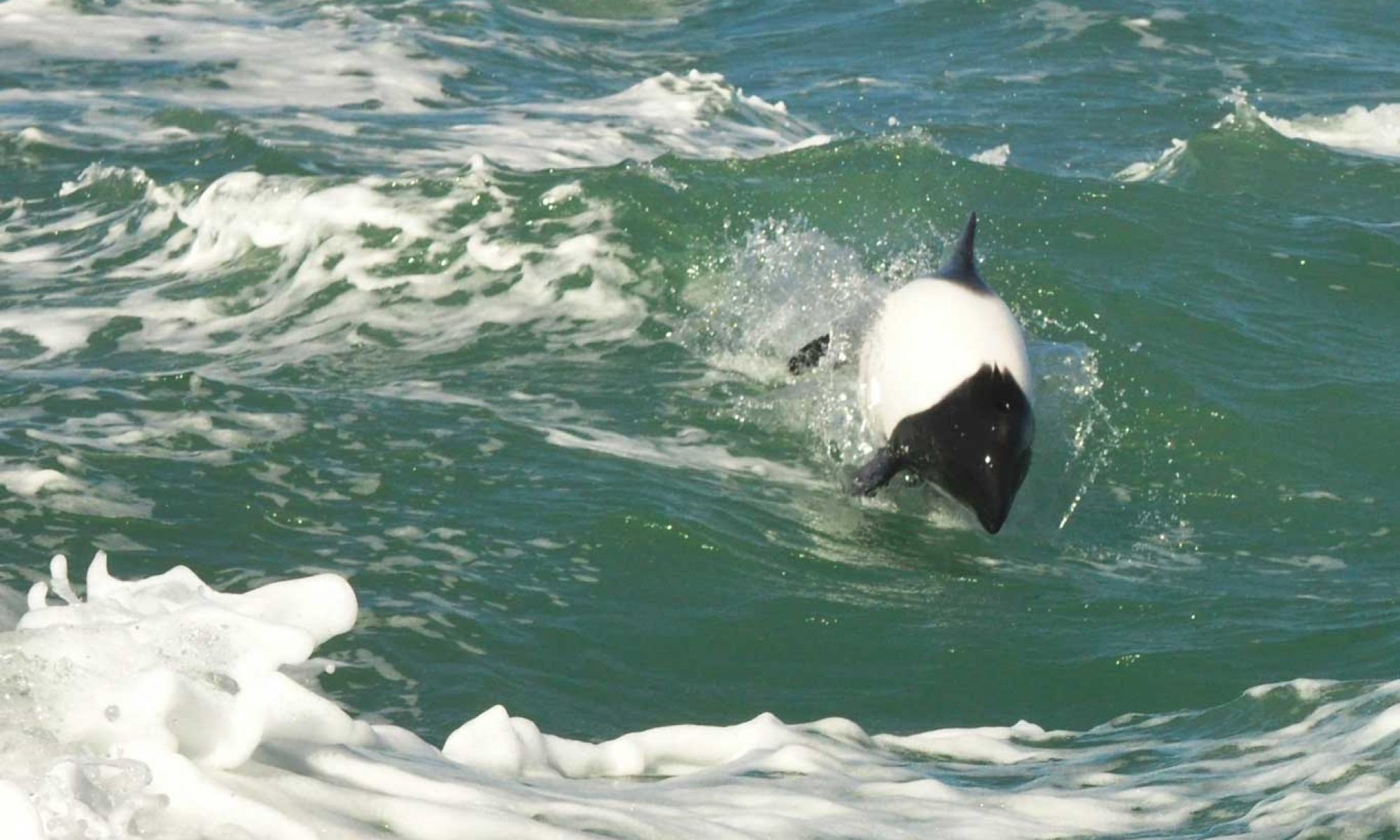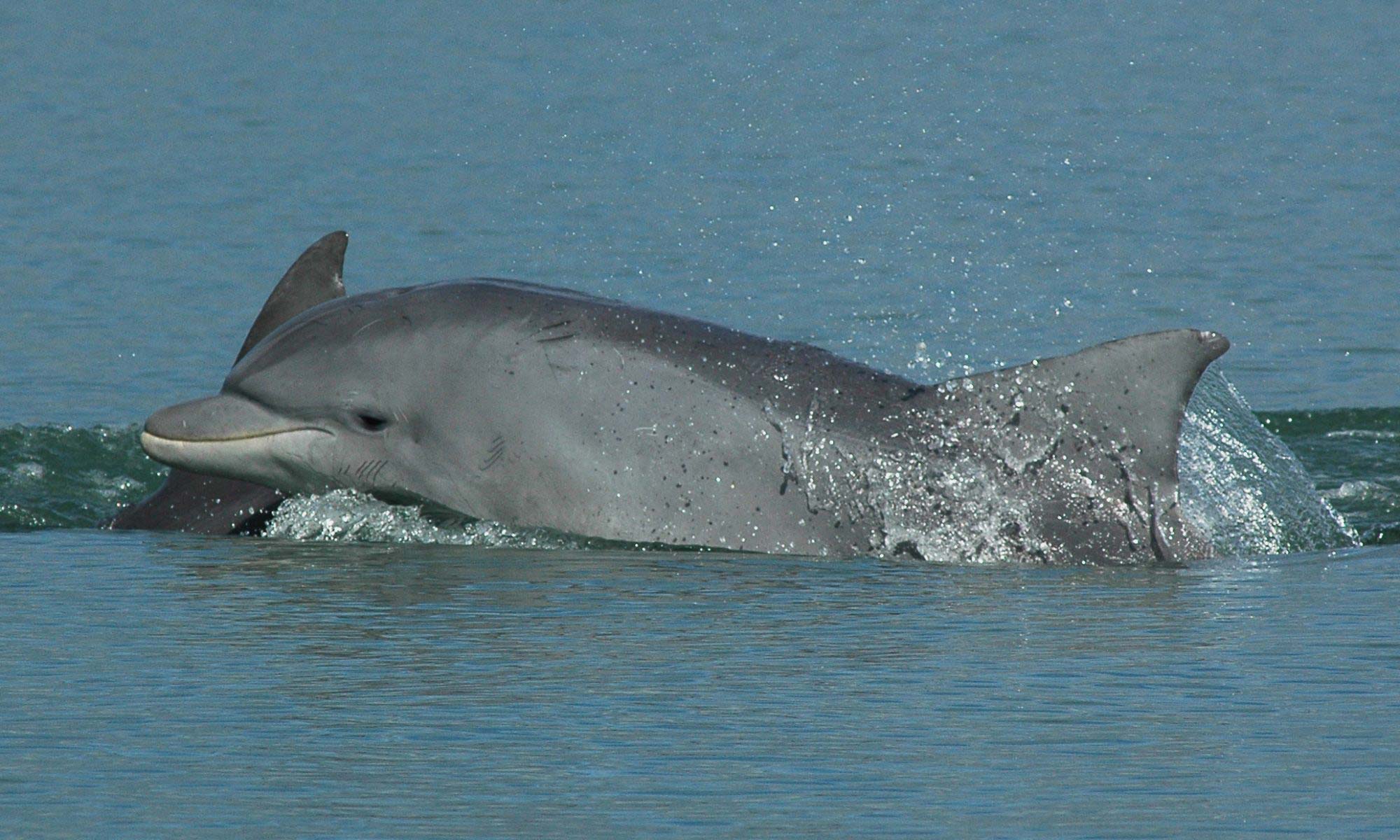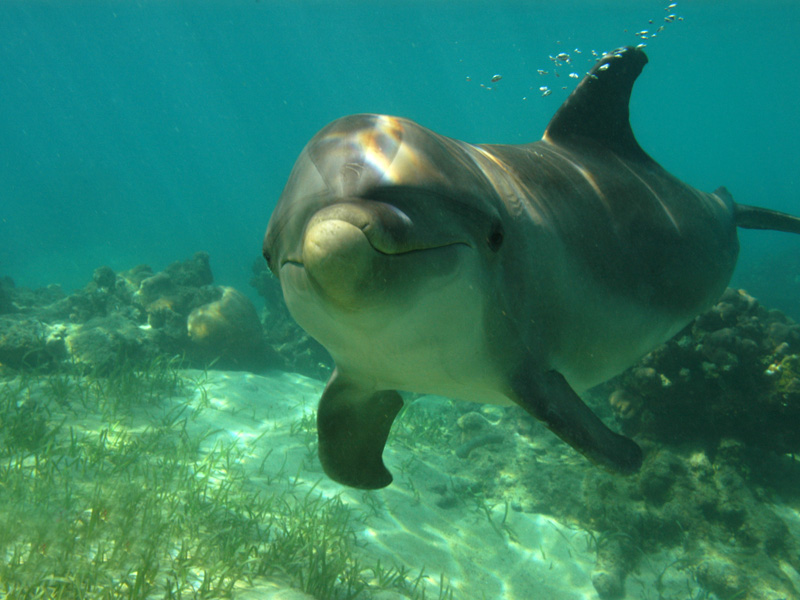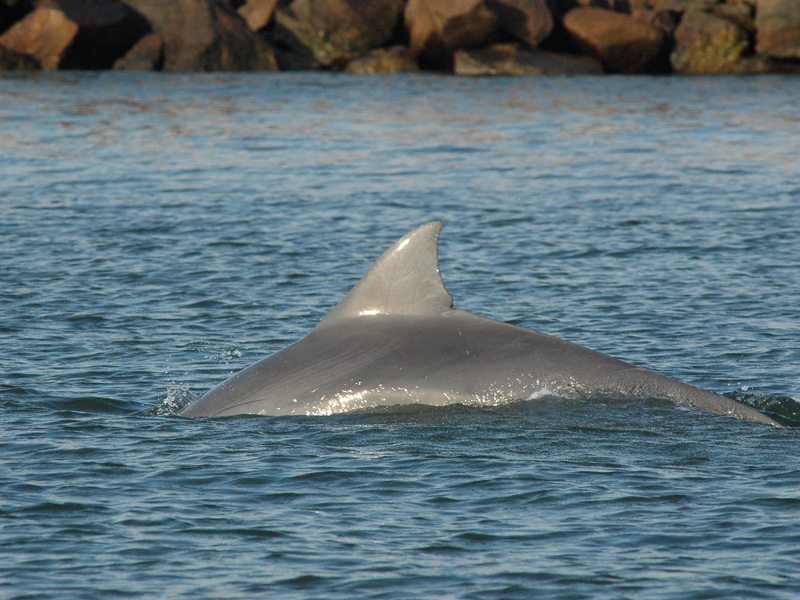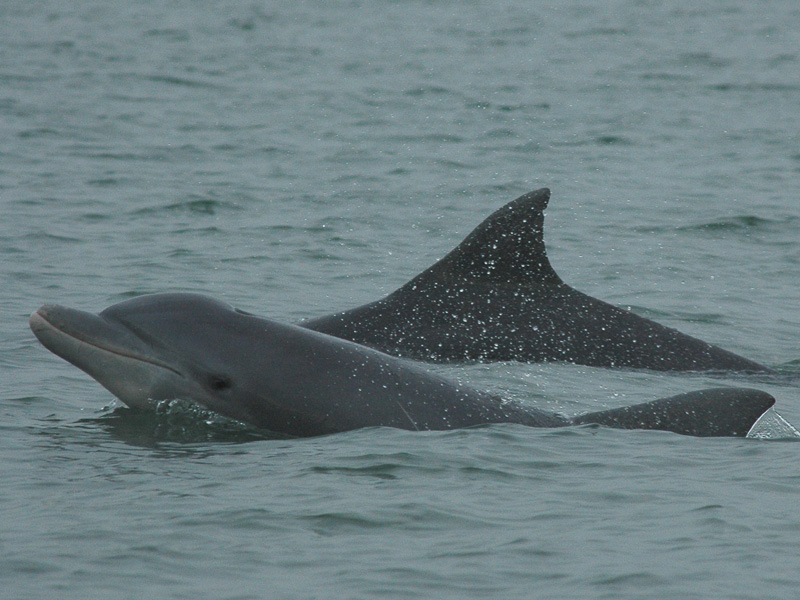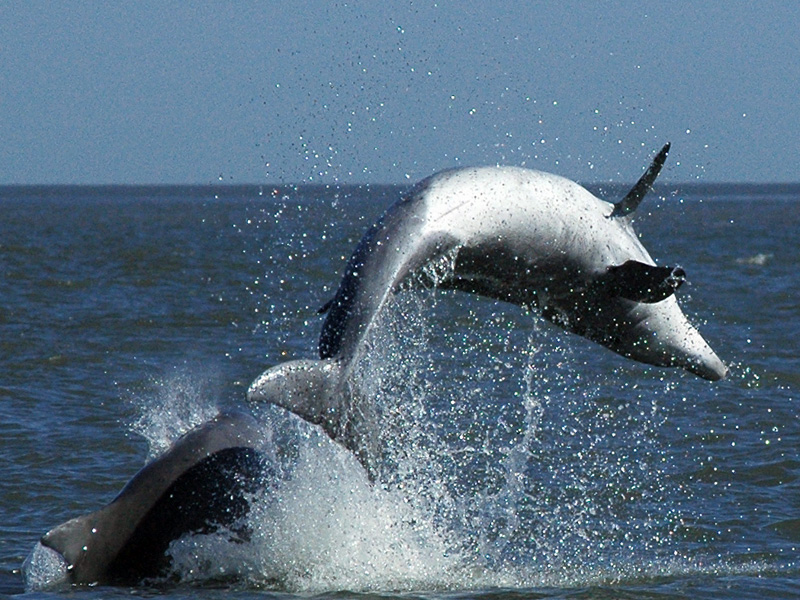Probably the most famous dolphin is the bottlenose dolphin (Tursiops truncatus).
It can grow almost 4 m long and weigh 500 kg. Its back is light gray to dark gray in color, the belly white. The fin is crescent-shaped. The beak is short and strong. Characteristic is the upward mouth gap, which creates the impression of a smile. Bottlenose dolphins are found in tropical and temperate waters, both in the high seas and on coasts. They live in small groups of up to 20 animals, but can also be found alone. In coastal areas, the populations are mostly local.
The groups consist of several females with their young and a few males. Young males often join together in bachelor groups and move around together for years.
In addition to body language, bottlenose dolphins communicate with each other with a variety of whistling and clicking sounds. Each animal also has a very characteristic, individual whistle as a recognition tone.
The bottlenose dolphin Tursiops truncatus feeds on different species of fish and squid and has developed different hunting techniques and tool use depending on the habitat. Echolocation can be used to detect food, examine objects and in poor visibility conditions. High-frequency clicking sounds are emitted that reflect objects, so that an auditory image of the environment can be created.
Dangers
Although the globally distributed bottlenose dolphin is one of the non-endangered dolphin species, local coastal populations are threatened to varying degrees in many countries. In most cases, the danger comes from the fishing industry, hundreds of animals get caught in nets with deadly consequences.
YAQU PACHA is working together with researchers from the Universidade Federal do Rio Grande FURG on the protection of endangered Lahille's bottlenose dolphins (Tursiops gephyreus) in the Lagoa dos Patos in Brazil.
Bottlenose dolphin project | Team Latin America | Project Amazon Dolphin | Videos | Chilean Dolphin | Project La Plata Delfin | 30 years of YAQU PACHA e.V. | Summary of a successful workshop | Species Conservation | Animal species that YAQU PACHA is working to protect | Sotalia Dolphin | Project Sotalia Delfin
